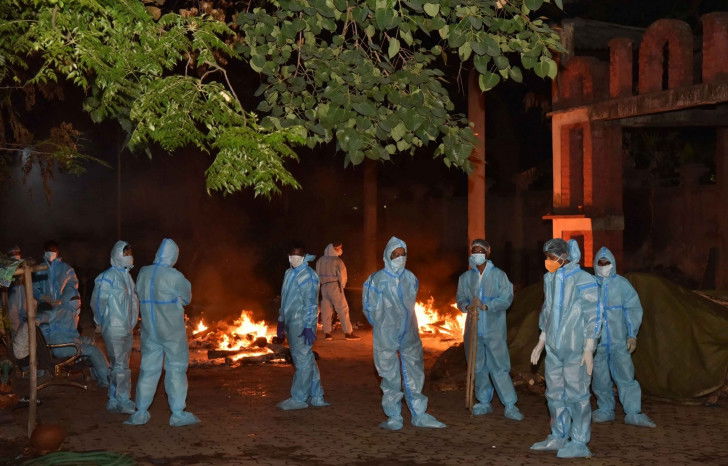America
India: Covid crisis and panic –the way out (Joseph Ponnoly)

India's COVID crisis is now in a panic situation. The statistics is scary. 1.4 billion people, nearly 3,75,000 new infections per day, 3000 deaths per day, test positivity rate around 25%, over 200,000 deaths from COVID-19 so far, less than 2% of the population fully vaccinated. India's COVID crisis is now a global crisis.
India must have a well formulated plan to deal with the second wave of the crisis. Some of the focus areas are listed below:
1. Critical Care. Only critically ill patients must be treated in the hospitals or in separate critical care centers. The treatment options must include use of effective drugs mentioned below. It appears monoclonal antibodies or immune boosting protein drugs are found effective for treating COVID. Another drug is Remdesivir. They are approved by FDA for emergency use. India could ask the USA for these drugs to be shipped to India urgently. Indian Government may have to discuss with US government for relaxing US export restrictions. From India's side, India will need to get these drugs approved by India's Ministry of Health. The Commerce Ministry must reduce import tariffs or exempt these drugs from tariffs. The hospitals could try oxygen concentrators for direct conversion of oxygen from air.
2. Non critical care: Those infected and not critically ill must be quarantined and must receive treatment in their homes. Ayurvedic and homeopathic treatment could be tried for those not critically ill.
3. Vaccination: Preventive measures must include vaccination in a planned manner starting with those most at risk. Vaccination must be provided free.
4. Social Interactions. Those who are vaccinated and those who have not been tested positive must be allowed to move freely to prevent an economic disaster. They must use social distancing and mask wherever required.
People must avoid unnecessary travels and social functions, public functions and mass gatherings until herd immunity level is beyond 60 to 70%. Remote work and remote education must be facilitated and must continue.
5. Hygiene. Personal and social hygiene must be encouraged. Dumping of trash in public must be prevented. Trash and sewage disposal and cleaning of canals and waterways must be the responsibility of the civic authorities and must be enforced.
6. Testing.Those who have fever or any of the symptoms must go for testing and must undergo self-quarantine. Testing must be free.
7. Medical Research. India must promote relevant medical, public health, and drug research.
8. Preventive Health. Diet, exercise, physical and mental health, and regular preventive health checkup at primary health centers, must be given due attention by individuals and government. Such measures can help to boost the body's immune system to fight diseases and attacks by viruses, germs, and bacteria using air, water, or physical contact as transmission vectors. Many villages still do not have clean drinking water.
India must think beyond lockdown and excessive controls to take more positive preventive, detective, and corrective measures. While focusing on safety and health of human lives, the economic fallout in the long term must not be lost sight of.
=======



































